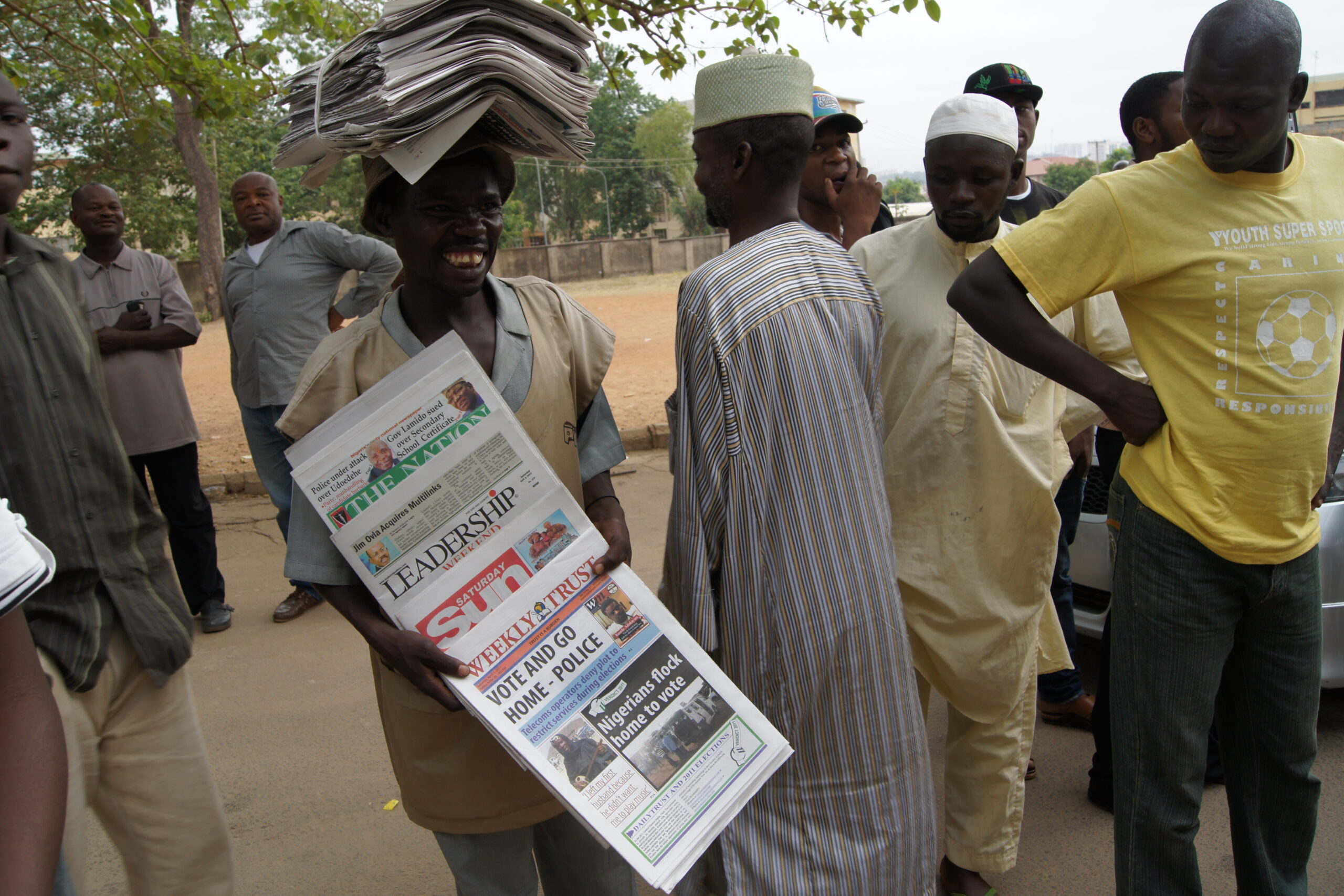By Senami Kojah
As the largest democracy in Africa and the most populous Black nation on Earth, all eyes are on Nigeria’s 2023 general elections, which can serve as a bellwether for regional politics. Journalists across the country are preparing themselves for heightened tensions at the polls due to an electioneering period characterized by violence and nationwide economic instability. Facing threats from the government, a slew of mis- and disinformation, and unreliable communications structures, journalists reporting on Saturday’s elections are operating in an incredibly hostile environment.
Social Media and the Spread of Disinformation
As election day approaches, there are new challenges that the press are confronting as they go to report on the polls, including fake news and disinformation campaigns targeting journalists on social media. Journalists with massive social media followings on Twitter and Facebook have been the target of disinformation campaigns that make them appear to have endorsed candidates in the elections. These campaigns make journalists look partisan, leading to the erosion of public trust and confidence in their ability to accurately document the elections—and even leading readers to seek out unverified, alternative news sources.
Another concern for journalists who will be utilizing social media for their election reports is the introduction of Twitter Blue, which allows users to pay for verification, a move that Meta is also looking to implement. In the not-so-distant past, verification was granted to journalists, reputable organizations, and prominent individuals to signal that information from those accounts was verifiable, traceable, and able to be moderated if those accounts began spreading disinformation. If anyone can pay for a blue check mark, then anyone can impersonate accounts, which can be problematic for local journalists from small newsrooms with few resources for extensive verification and fact-checking.
This has already resulted in confusion. For example, Nigeria’s new monetary policy is a highly sensitive topic that is driving conversations around vote buying in the elections. This topic has been subject to misinformation spread by “verified” accounts, which has misled journalists, resulted in erroneous reporting by traditional media outlets and forced the Nigerian Central Bank on many occasions to debunk the misinformation.
Navigating Unstable Security and Communication Environments
While navigating landmines online, journalists in Nigeria are also confronted with the stark reality of insecurity in the country. In the past, the threat of Boko Haram terrorists, bandits, and kidnappers would have only been a concern of journalists located in the north-eastern part of the country. But an escalation of violence over the last eight years means that journalists across the country are now under threat, with many newsrooms sending journalists into high-risk situations without proper training or protective gear.
Journalists reporting in Nigeria during the 2023 general elections are also having to contend with two main issues stemming from unreliable communications networks: the first being that in the days leading up to the elections, Nigerians are already reporting network outages from some of the largest communication providers in the country. Additionally, there is concern that the Nigerian government will weaponize national security concerns to shut down communication infrastructure or throttle it, as it has done in the past, in an attempt to shrink civic space.
Role of International Media Assistance
These insights into the space that Nigerian journalists will be operating in during the elections provide a unique opportunity for media development partners to expand Nigeria’s civic space and democracy through the instrument of the press. One way to accomplish this is to advocate at the highest levels for Twitter and Meta to pay attention to the deployment of verification check marks in Nigeria and in other parts of the Global South. While profit might be at the forefront of the new policy, social responsibility considerations would ensure that the spread of fake news is kept in check and that journalists can access quality information from verifiable accounts in high-stakes situations such as elections.
Additionally, media development actors should consider advocating for more transparent and seamless processes to ensure that newsrooms have sufficient bulletproof vests, helmets, basic high-risk situation and self-defense training, and tools for risk assessment that journalists can utilize before deployment in the field. Journalists reporting on the 2023 general elections may be exposed to traumatizing and volatile events. It is important that development actors consider providing trauma counseling resources to journalists who find themselves in those contexts.
Heading into the elections, Nigeria’s journalists are facing government interference, a chaotic social media environment, and a high probability of physical violence. Alleviating these issues will require both short-term support to navigate the instability of a volatile election period and sustained conversations with journalists, digital rights activists, and tech platforms to find workarounds for government attempts to shut down communications and ways to boost trustworthy, verifiable information on social media. It will also require development partners to escalate incidents of rights violations against journalists in the country so that the protections that international visibility affords can extend to them, ensuring that their stories are documented and tracked for further attention or intervention.
Senami ‘Sena’ Kojah is an award-winning journalist. She has worked with Sahara Reporters as a journalist and news editor and with Tin City 104.3 FM where she was the deputy head of news and current affairs. She has also worked with the BBC as a researcher, and for Climate Tracker as its Africa programs manager and has written about media in Africa for the International Journalist’s Network. She was a Reagan-Fascell Democracy Fellow at the National Endowment for Democracy. Senami has a master’s degree in mass communication from the University of Jos in Nigeria and is currently a PhD in Information Science student at the University of Michigan, Ann Arbor, where she is researching digital surveillance, AI, content moderation, the media, and human rights in the Global South.


Comments (0)